By early April, the first returning blackcaps are singing - just a couple of weeks later than the pioneer chiffchaffs, but seemingly with much more to say.
The song is a varied, rapid, rushing warble, much richer than a robin or a dunnock.
The flow tends to start with a few quiet, hesitant notes, and then quickly accelerates.
It’s like they are fit to burst and need to pour it all out as quickly as possible.
There are little churrs and scratchy phrases, but these give way to purer passages of melody, that sound rather like a blackbird’s flutey whistle being played back at high speed.
Blackcaps are greyish birds, around the size of a sparrow. The male has the black cap, the female a brown one.
Although far commoner as a summer visitor, many of us will have had our closest sighting of a blackcap in the winter, because a few thousand of them choose to spend the colder months in the UK.
Blackcaps have taken a liking to our gardens, and more specifically to the food we put out in them.
They are the only species of warbler we are likely to see at our bird table at Christmas, or at any other time.
But the blackcaps that overwinter with us seem to be a completely separate population to our summer visitors, coming in from places in northern Europe such as Germany, and heading back East in the early spring.
In the summer, blackcaps can be found widely, in gardens, parks, woodlands and tall hedgerows, from the southern coast of England to the northern isles of Scotland. Their population has increased almost fourfold since the 1960s, now numbering some one and a half million territories each year, with their range having expanded northwards and westwards.
When the first migrants return in the spring, there’s not much to confuse them with, if you hear them well.
A little later in the season more care is required, because the garden warbler arrives.
Garden warblers are actually less likely to be found in a garden than a blackcap, and are rather scarcer, but both species occur together in some scrubby areas, and they really do sound very alike - they’re one of the trickiest pairs of birds to separate on sound.
It’s usually a good idea to be patient and try to see who’s doing the singing. Garden warblers lack a cap, and in fact lack almost any other distinguishing feature, poor things.
In the meantime, if you’re hearing an energetic and varied song in March or early April it’s almost certain to be blackcap, so it's a good time to tune in and enjoy what’s made this bird known in some parts as the ‘northern nightingale’.
Blackcaps can be found all across Europe in the summer, and in much of Africa during the winter. Find out more about the ecology in Britain on the BTO website.
Sounds suspiciously like: Garden Warbler
Thanks for reading and listening. This is the twelfth instalment in 2024’s cycle of Shriek of the Week. You can catch up with Nuthatch, Starling, Chiffchaff, Collared Dove, Wren, Dunnock, Great Spotted Woodpecker, Robin, Great Tit, Song Thrush and Blackbird (that last one includes an explanation of how this all works in 2024).
For those in a position to do so, taking out a paid subscription to Shriek of the Week supports me to write more and improve what I do each year. It also gets you an invitation to our livestream odyssey Early Bird Club call, and discounts to some in-person events in the UK.
A warm welcome to new subscribers (we hit the 2,000 mark in March!). I enjoying hearing about your experiences with the birds - do leave a comment on the online version of this post if you’d like to.
Birdsong Academy now booking:
Half-day birdsong ID walkshops in Stanmer Park (Brighton)
*New date added - Saturday 18 May 2024*Dawn Chorus experiences at The Secret Campsite, East Sussex (camping optional!)
Friday 12 April (five tickets left) and Friday 10 May.
Up With The Birds - our ‘crowdsourced dawn chorus’ (free, April & May)
The Birds of Alnmouth, with Tom Cadwallender (free Zoom talk, 23 April 2024)
Media credits:
Thanks to Aubrey John Williams and the British Library for the recording of blackcap on Soundcloud.
Blackcap image by Jürgen from Pixabay
Garden warbler image Steve Garvie reproduced under Creative Commons Attribution-Share Alike 2.0 Generic license.


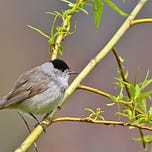


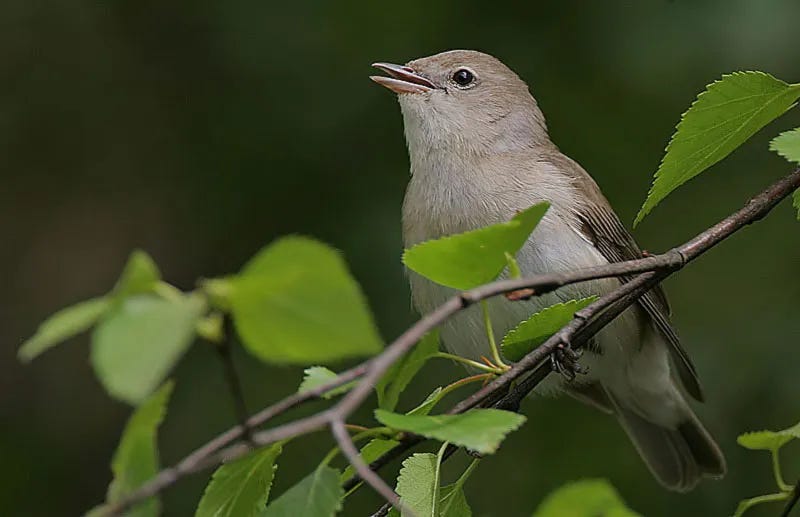
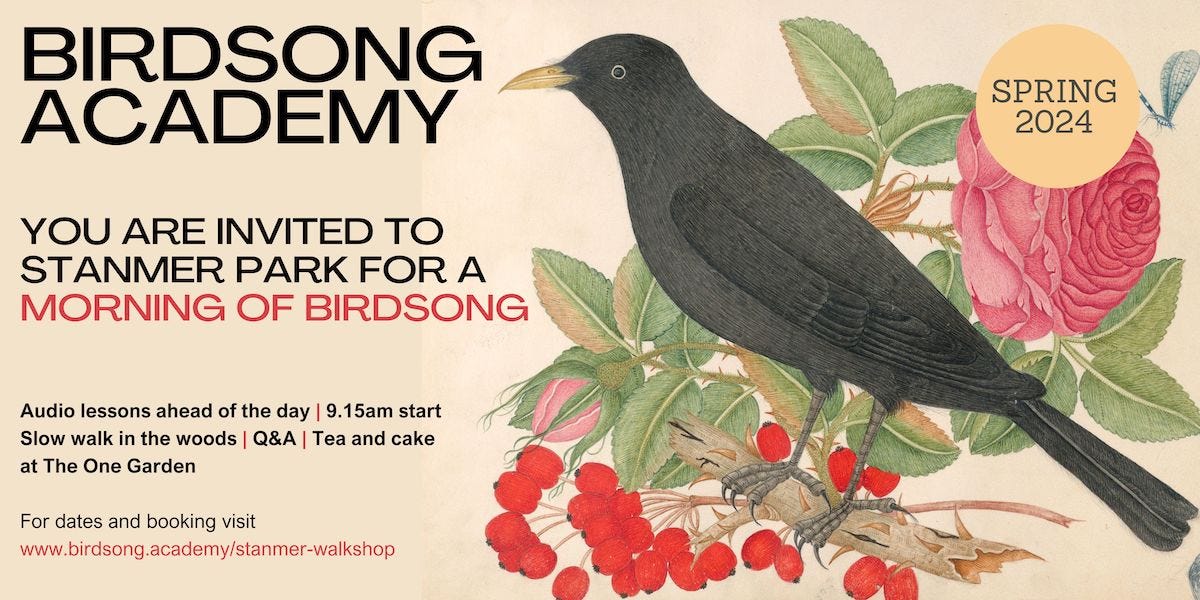

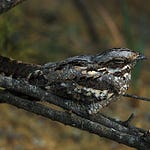
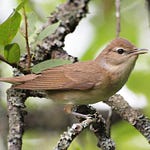

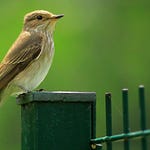


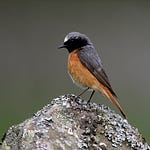

Share this post